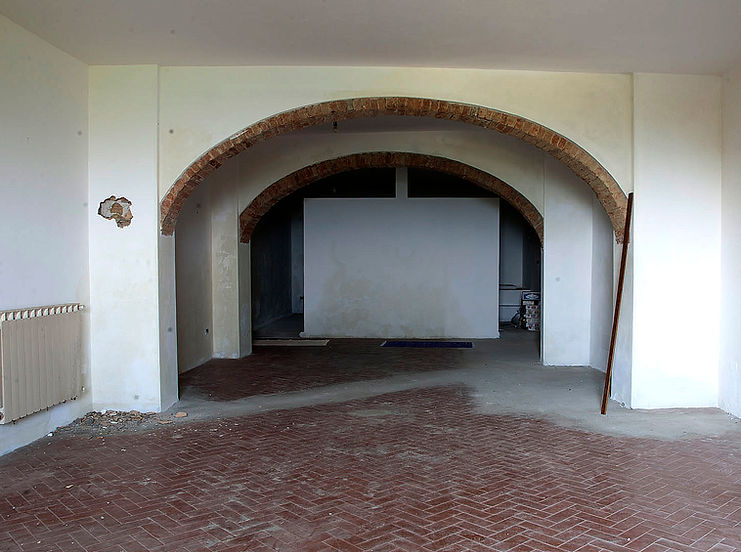
welcome at umamma
Umamma is a typical Tuscan expression that encapsulates a moment of amazement.
It is verbally expressed when the unexpected happens, and we are left open-mouthed.
That was the first thing I said when I crossed the threshold and saw the space.
Once I had closed the door, leaving all the noise outside, I hurried to the window to see the view.
From above, the valley of the river Arno dominated the view, and on the hills on the opposite side, you could see Leonardo Da Vinci's house.
The sunset was making room for the night and the tiny lights of the distant houses;
the only sounds you could hear were the owls and the sheep bells here and there.
Looking outside, it felt like being on top of a skyscraper or a plane, peeking down at the landscape, but the scents of plants and the countryside betrayed that feeling.
I liked that space.
During the restoration, when I was lucky enough to be home,
I loved spending my evenings alone in the house imagine what it would become.
I would put a chair in the middle of the room amidst all the dust and tools, move a few empty boxes to give shape to the space, and even use telescopic broom handles, fixing them to the ceiling to simulate the dividing walls, walls that would in the end never be built.
Then I would sit looking around me, waiting for some out-of-control neurons in my brain
to accidentally collide and spark new ideas.
This is how Umamma was born after many accidents.
WHAT'S WAS BEFORE
In a 16th-century palace protected by the superintendence of Fine Arts in the upper part of the village of San Miniato, the historic Piazza Bonaparte, still paved in stone, is the setting for UMAMMA.
Older adults tell us that in the distant past, given its shape, this portion of the building was used as a stable for the horses.
In the early 1900s, its owner converted the property into a brothel.
Little light entered the property because of its small windows, creating the ideal dark environment. It seemed to have a mystical and desecrating air. It was then closed a few years later.
The space has undergone a seven-year-long restoration, unearthing its original architecture and fully opening the rear facades. UMAMMA is spread over an area of 230 square meters with walls that reach a thickness of 150 cm.
The open space includes a living room + kitchen of 80sq.m., a bedroom with bathroom of 60sq.m, a studio with bathroom of 30sq.m, a terrace of 25sq.m, and an indoor swimming pool with hot water and a shower of 35sq.m.
Leaving the door of UMAMMA, we are directly on the incredible Via Francigena.
From there, you can start a 3000 km journey through the most beautiful places in Italy.
San Miniato boasts a strategic location about 30 minutes from Florence, 30 minutes from Pisa, 30 minutes from Lucca, and 40 from Siena and is the home of the white truffle.
From the inner garden, you can look out over Vinci, the town of Leonardo.

BEFORE

AFTER

BEFORE

AFTER

BEFORE

AFTER

BEFORE
